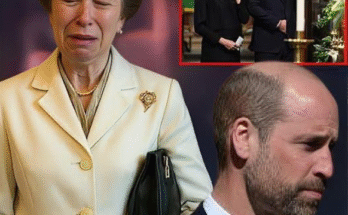Jay-Z, the renowned rapper and entrepreneur, has been embroiled in a prolonged legal dispute with Rymir Satterthwaite, a 31-year-old man who claims to be his biological son. The controversy centers around allegations that Jay-Z fathered Satterthwaite during a brief encounter in 1992, when Satterthwaite’s mother, Wanda, was 16 years old. Despite Satterthwaite’s persistent efforts to establish paternity, Jay-Z has consistently declined to undergo a DNA test, citing jurisdictional issues and other legal technicalities.
Background of the Allegations
In 2010, Wanda petitioned a Pennsylvania court to mandate paternity tests for both her then-partner, Robert Graves, and Jay-Z. The test conclusively excluded Graves as the biological father, leaving Jay-Z as the only potential candidate. However, Jay-Z’s legal team contested the court’s jurisdiction, arguing that the case should be heard in New Jersey, where Jay-Z resides. This legal maneuver effectively stalled the proceedings, leading to a decade-long impasse.
Recent Developments
In November 2023, Satterthwaite, along with his godmother, Dr. Lillie Coley, filed a lawsuit against the New Jersey court system and several judges. They allege that these officials conspired with Jay-Z to dismiss paternity and related cases over the years, resulting in significant financial and personal harm. The lawsuit claims that Jay-Z lied in court about not owning property in New Jersey to avoid jurisdiction, despite evidence to the contrary.
Satterthwaite’s Perspective
Throughout this ordeal, Satterthwaite has expressed a desire for truth rather than financial gain. He has stated, “I just want the truth,” emphasizing that his pursuit is not motivated by money or fame. Satterthwaite’s mother, Wanda, passed away in 2019, believing Jay-Z was her son’s father. Before her death, she provided an affidavit detailing her claims about Jay-Z’s paternity, adding weight to Satterthwaite’s pursuit of answers.
Jay-Z’s Position
Jay-Z has remained silent on the matter, with his legal team citing jurisdictional issues and other legal technicalities to avoid a paternity test. This refusal has led to public speculation and criticism, with many questioning the ethics of denying a paternity test when such a claim has persisted for over a decade.
Conclusion
The ongoing legal battle between Jay-Z and Rymir Satterthwaite highlights the complexities of paternity disputes, especially when they involve high-profile individuals. As the case continues to unfold, it underscores the challenges of navigating legal systems and the profound personal impacts such disputes can have on all parties involved.


